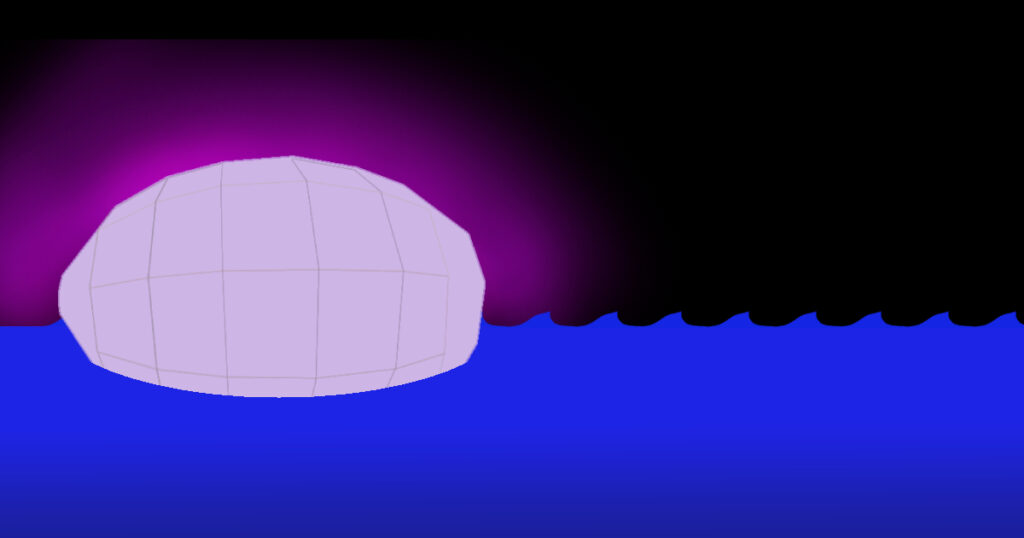Last updated April 2023.
This is a record of what I did prior to figuring out that you should not live in water-damaged buildings, and that iron supplements are really, really bad for some people.
By 2018 I had, for the second time in 20 years, rebounded in a striking way from a series of debilitating symptoms, including a major loss of energy. I had done something similar in 1999, but I had attributed the first success to a major diet change.
Instead, I think that the cause of my 1999 improvement was quitting the ultra-inflammatory gluten, and later dairy, while avoiding and detoxing mold to a surprisingly effective degree, without even knowing it. I had moved to a new, non-water-damaged home, completely replaced my wardrobe and put my possessions in storage so that I was not being exposed to items contaminated from previous moldy domiciles, and was taking binders several times a day.
Where I was in 2013
In 2002, after reclaiming a huge chunk of my health, and the end of my decades-long depression, with some major diet changes, I was so busy enjoying my new peaceful existence that it was two years before I started worrying about the disappearance of my energy.
I had gone from sprinting up 50 stairs at a time and biking in snowstorms to being passed on a mountain trail by a pregnant woman in high heels. (I was too demoralized to ask her why she was wearing pumps in a national park.)
If I tried walking around the block for say, three days in a row, my muscles and lung power would recover quickly, but a profound mental exhaustion would set in. It was as if my energy was at 30 percent of normal and had to be carefully allocated among ALL of my biocontainer’s functions.
All the energy I had went into my job. Luckily I only had to drive into work twice a month. Going to the office — driving, parking, walking, carrying a heavy backpack, etc. — meant I would be too tired to fix dinner.
Keep this sort of thing to yourself
I learned not to mention the fatigue outside my family because it encouraged every idiot with a gym membership to tell me how to get back into shape. This wasn’t being out of shape. See also my rather bitter rant on chronic illness and “nice” people. Also this rant on dumb crap people say about chronic illness.
The long saga of seeking “official” chronic fatigue
First, a very, very short history of chronic fatigue syndrome. It first showed up in 1934 among the staff of a Los Angeles hospital and was thought to be a form of polio. It typically has a sudden onset and tends to come and go.
There are specific, government-mandated criteria to be met for an official chronic fatigue syndrome diagnosis and although I met the Canadian government’s criteria, I did not meet the US requirements. Or maybe it was the UK government’s. At the time I was investigating it, there were absolutely no effective treatments for it.
The only benefit of an official diagnosis was to increase the probability of getting disability benefits once you became unable to work. The fact that my income would have been reduced by half on disability, and that all the doctors I’d have to go through to get such a diagnosis were condescending witless turds, made me disinclined to pursue the matter.
Speaking of witless turds
To rule out chronic fatigue syndrome, I visited a specialist at our much-ballyhooed local clinic. When I mentioned the mild success I’d had with zinc, he said it was in my mind: I wanted it to work and it did. When I pointed out that 80% of the things I tried didn’t work, he changed the subject. Then he offered me an antidepressant.
Dr. CFS’ lack of basic reasoning skills did nothing to rebuild my confidence in the health care system. And then there’s his arrogance in assuming that observations outside his purview are not valid data. He should at least have acknowledged that nutritional effects were the territory of another type of doctor.
Yet another reason to never trust a doctor with a beer belly.
Support group saves the day
I eventually found an online support group that accepted sufferers with or without an official diagnosis. At the time, the vast majority of support groups were adamant that you had to have a doctor’s diagnosis.
About five years after I had been evaluated by the Cleveland Clinic, I learned from the group that the US had eased its definition to be more like the UK’s. Or maybe it was Canada’s. In any case, I remember thinking that I would have met the new set of criteria. Later it occurred to me that I also met the earlier criteria of “relapsing,” but just never put it together. I recovered in 1999, then relapsed again.
In 2014 I saw an article on the front page of the New York Times about an official renaming of chronic fatigue, in part to avoid the stigma that had grown around it. The very first comment appeared minutes after the article was published, by a woman who said she’d had huge success treating her chronic fatigue as mold poisoning.
I jumped to the support group. What gives? Three different people replied, saying, that is was definitely a factor in their issues. One person pointed me to Ritchie Shoemaker’s books.
I thought why in holy hell did no one mention this?
Other things the exhaustion was not
Nor was it hypothyroidism, hypoglycemia or adrenal wackiness. It was undoubtedly partly due to low iron levels and insomnia, but I kept running into a wall just trying to address these.
To wit: iron supplements got my energy level and concentration going in two days, but after two more days I would completely stop sleeping. All the doctors I mentioned it to, both traditional and alternative, had no answers.
Antidepressants are always the answer
Which brings me to another lesson I’ve learned: if you return repeatedly to a conventional doctor with a problem they can’t solve, they will eventually suggest you need antidepressants. (Never mind that even at the worst of my depression I was walking at least 45 minutes a day.)
Things I tried
Nutritional therapy approach
In addition to the conditions mentioned above that have been treated or ruled out over the years, I tried repleting the following in big or even megadoses:
- calcium/magnesium (great for 2 months, then lowered my iron levels too much)
- folate
- lactoferrin (supplies iron without involving the liver too much, which seems to be an issue, and also reduces inflammation in the liver and everywhere else; was very helpful, but then began contributing to the insomnia)
- L-glutamine
- methionine or maybe glutathione (my notes say this helped a lot for a while but I cannot remember what it did or how long)
- protein (in powder form)
- vitamin B-complex (helped a little, but worsened insomnia, then induced insanity briefly, but that’s another story)
- vitamin B6 in the form of P5P (big doses helped significantly, then began to cause debilitating headaches)
- vitamin B12
- vitamin D3 (following this neurologist’s guidelines for repletion; helped significantly for five months, then more headaches)
- zinc (worked a bit for a month or so)
- thiamine in the form of benfotiamine and thiamine tetrahydrofurfuryl disulfide (TTFD), recommended by someone on Yahoo’s iodine group. Benfotiamine made a huge difference for a month, then stopped working and caused complete insomnia. Had a bit more luck when switched to TTFD and added vitamin B2 (riboflavin).
Adrenal treatments
My adrenal treatments, by the way, included hydrocortisone, acupuncture, adrenal glandulars, traditional Chinese medicine herbs (adaptogens), and cortisol-lowering supplements such as phosphatidylserine and Holy Basil (that’s an herb). All helped a little, but not much.
Other investigations
Other potential issues I investigated to no avail: candida, pyroluria (a chronic vitamin B6 deficiency problem), copper and mercury poisoning, and amino acid/neurotransmitter imbalances.
Calorie increase
I also tried increasing my daily caloric intake to 1900 calories for 18 months, which isn’t easy when you have to avoid gluten, goitrogens, and high-histamine foods. This gave me more physical and emotional stamina to get through my usual daily activities, but nothing else. Except for the 20 pounds I gained.
When this content was posted
The content on this page was first published in April 2011 and updated in December 2014, July 2022, and April 2023.





Hi Marjorie,
I have been reading your site with great interest, you have many of the same symptoms that I have, especially the histamine and mental exhaustion. I read about how Vitamin D has improved your energy (mental as well?) and you mention the neurologists guidelines for repletion – but in my mentally drained state : ) – I can’t seem to find the guidelines? Also, has vitamin D every given you the urge to sleep shortly after?
Any help is appreciated!
James
P.S. Fantastic site, love the touches of humor, thanks for having it up!
Thank you for the comment! I really appreciate it. I had forgotten how long and dense that article was — the dosage guidelines are in the second column, 7 or 8 paragraphs down, with the heading “What is the right D hormone dose?”.
Vitamin D has never had a sleep-inducing effect on me, no. It did improve my mental energy somewhat but not like my physical energy. However, I’ve lost even that benefit recently and suspect I overshot the dose. In the same article, Dr. Gominak says that “[health issues can result] from a high vitamin D just as easily as from a low vitamin D” and that testing levels is very important, which I haven’t been doing. Oops.
Oh, and another thing. My histamine levels improved a lot with my iodine experiment, and I believe I read on Yahoo’s iodine group that large amounts of vitamin D can interfere with iodine levels. (“Iodine inhibits the conversion of histidine to histamine” — see this page.) I haven’t noticed any worsening of my histamine yet, but then I took a lot of iodine for a long time. You might want to look out for a correlation when you start vitamin D.
Wow I wish I had found this site years ago. I have so many of the same symptoms as the Marjorie as well regarding the energy thing.
@ James – I was taking a calcuium/magnesium/zinc/D supplement earlier in the year and it was giving me the best sleep ever… but then it started working too well and I was sleeping 12+hours and being a zombie in the morning. Two pills were 1000mg of calcium. Unfortunately I think it also effed up my knee and gave me calcuim deposits in there. A few months later I tried to combat that by quitting the calcium, and started taking some liquid vitamin D3+K2 from some ideas in the blog. Megadoses has been a godsend for the knee pain….. BUT it is knocking me out again for 10-12 hours. If you ever figure out if it is just the vitamin D, please post 🙂
@Marjorie – I hope this isn’t too personal to ask, but may I ask what your ferritin level stands at? Mine was at 14 a couple of years ago, but even after 2 years of moderate intake of iron pills it is only at 39. I have less urges to conk out at my desk now, but I still can’t run around a track. I’ve gained 30lbs since all this crap, and I am getting beat by girls 50lbs heavier than me still. So annoyed. I’d be pissed too about the pregnant lady going up the hill! hahaha
EnergySeeker: I have not retested ferritin since starting lactoferrin. Based only on how I feel, I believe it has improved since the last test in June of 2011, when it was 12. But it’s still not great. I can do more than usual now and I think better, but I have to take a LOT of it — 4 to 6 times the dosage on the label. I started that after I found other iherb.com reviewers who do the same thing.
Taking big doses (300 mg a day for several months) of vitamin B6 in the form of P5P also helped.
FYI I am revisiting heavy metal poisoning, after discovering how unreliable the tests are, be they blood, hair, or chelation challenge. Lead, copper, and/or mercury poisoning would make it very difficult to keep iron levels up. Also, certain supplements like vitamin D, calcium, and iron are capable of moving copper and lead around in the body, which might explain some of my headache/insomnia/zombieism reactions. I don’t have mercury fillings, thank god, but I’ve been calling water companies and my old landlords to see what kind of pipes I’ve been exposed to in my former residences.
Hopefully 2014 will bring us more energy and less public humiliation!